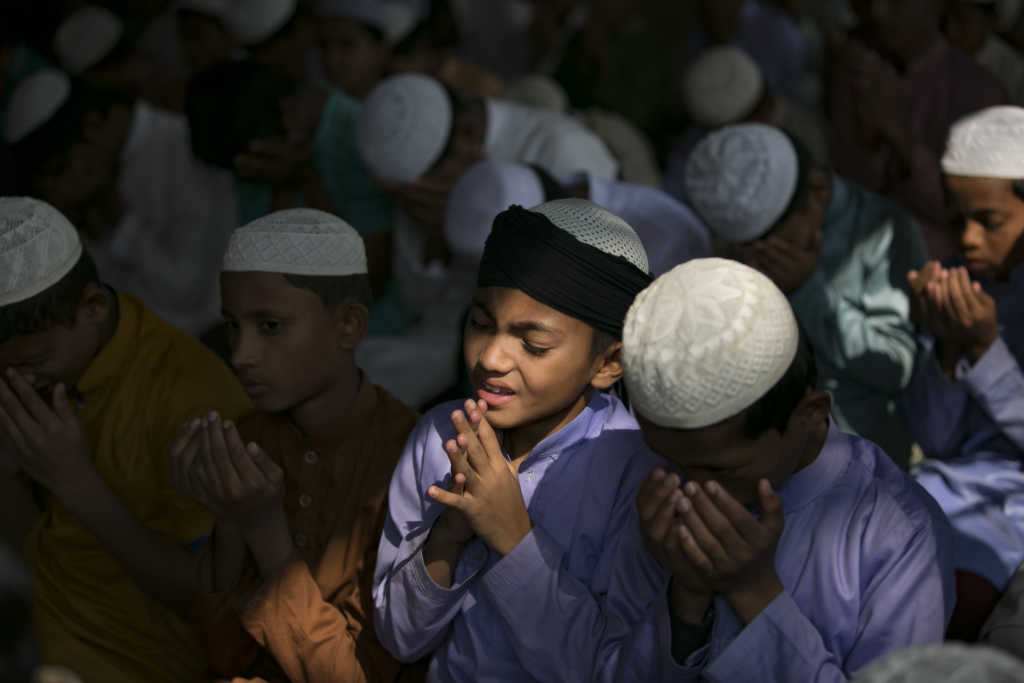The world’s highest court has ordered the imposition of measures to prevent the genocide of Rohingya Muslims in Myanmar (Burma).
On Thursday, The International Court of Justice (ICJ) ordered that emergency “provisional measures” be placed upon the country in a bid to save the lives of the besieged religious minority.
Thousands of Rohingya perished and upwards of 700,000 fled the country after a brutal military crackdown in 2017.
The court’s momentous action comes just a month after the country’s de facto leader, Aung San Suu Kyi, denied the accusations of ethnic cleansing that have been leveled against her. Despite her repeated assurances, the United Nations insists that if no action is taken, genocidal actions could recur. The ICJ, which is operated by the UN, called upon Suu Kyi to respect 1948 Genocide Convention and take immediate action to protect vulnerable minority groups.
The genocide case, filed on behalf of Gambia, is only the third of its kind heard at The Hague since the Second World War.
Prof Philippe Sands QC, the barrister acting as legal counsel for the Gambia, told the Guardian that the court’s “clear and forceful order” signaled a “significant day for international law, the rights of individuals and groups, and the meaningful obligation of every state and person to desist from any act that could plausibly be characterised as genocide.”
The order, as Sands highlighted, is legally binding.
Myanmar, which is a Buddhist-majority nation, has always insisted that its military offensive was ordered in a bid to tackle an extremist threat in the western Rakhine state. According to the BBC, in her defense statement delivered to the court, Suu Kyi argued that the violence was nothing more than an “internal armed conflict.”
In an article published at the Financial Times shortly before the ruling, Suu Kyi even accused refugees of issuing “unproven statements” and presenting “a distorted picture” of the conflict.
“The international justice system may not yet be equipped to filter out misleading information before shadows of incrimination are cast over entire nations and governments,” she warned, alleging that UN-led fact-finding missions in Myanmar were riddled with inaccuracies. “We have to recognise that there is a systemic challenge,” she said of the wider investigatory process, before arguing that the entire case was “incomplete and incorrect.”
The indiscriminate and widespread nature of the atrocities, however, has caused many experts to warn that a quiet genocide is taking place at the hands of the military. Now, it would appear, the ICJ agrees with that assessment.
Under section four of the ruling, titled “RISK OF IRREPARABLE PREJUDICE AND URGENCY,” the ICJ wrote:
“The Court notes that the reports of the Fact-Finding Mission have indicated that, since October 2016, the Rohingya in Myanmar have been subjected to acts which are capable of affecting their right of existence as a protected group under the Genocide Convention, such as mass killings, widespread rape and other forms of sexual violence, as well as beatings, the destruction of villages and homes, denial of access to food, shelter and other essentials of life.
The Court is of the opinion that the Rohingya in Myanmar remain extremely vulnerable, observing in particular that the Fact-Finding Mission concluded in September 2019 that the Rohingya people remained at serious risk of genocide.”
The “Global Centre for the Responsibility to Protect,” which seeks to transform the principle of “Responsibility to Protect” into a “practical guide for action in the face of mass atrocities,” said it was encouraged by the ruling.
“This is the first step on a path to justice for the Rohingya,” said director Dr. Simon Evans in a press release. “I hope that all members of the UN security council will uphold their moral and political obligation to ensure that the provisional measures ordered by the court are fully implemented. Those responsible for genocide are still in power in Myanmar. Justice has been delayed but can no longer be denied.”
The “Responsibility to Protect” (R2P) is a collective political commitment — signed by all member states at the United Nations at the 2005 World Summit — with the express aim of preventing genocide, war crimes, ethnic cleansing and crimes against humanity.
R2P has been used as the prerequisite for various instances of foreign military intervention when the country’s population has been at grave risk of genocide. In 2011, R2P was cited by the UN security council as the primary justification for military intervention in Libya after leader Muammar Gaddafi threatened to begin systematically killing all those who opposed him.
Gaddafi was killed by opposition fighters shortly after his convoy was struck by a NATO-led coalition sortie which had, in turn, been acting on an emergency resolution passed by the UN security council.



